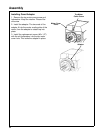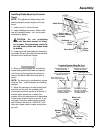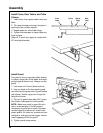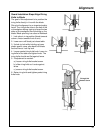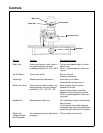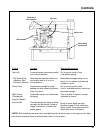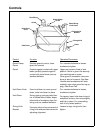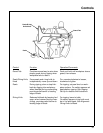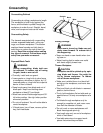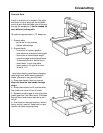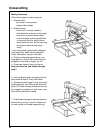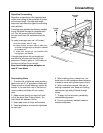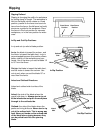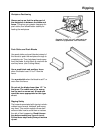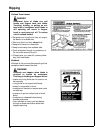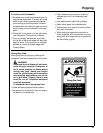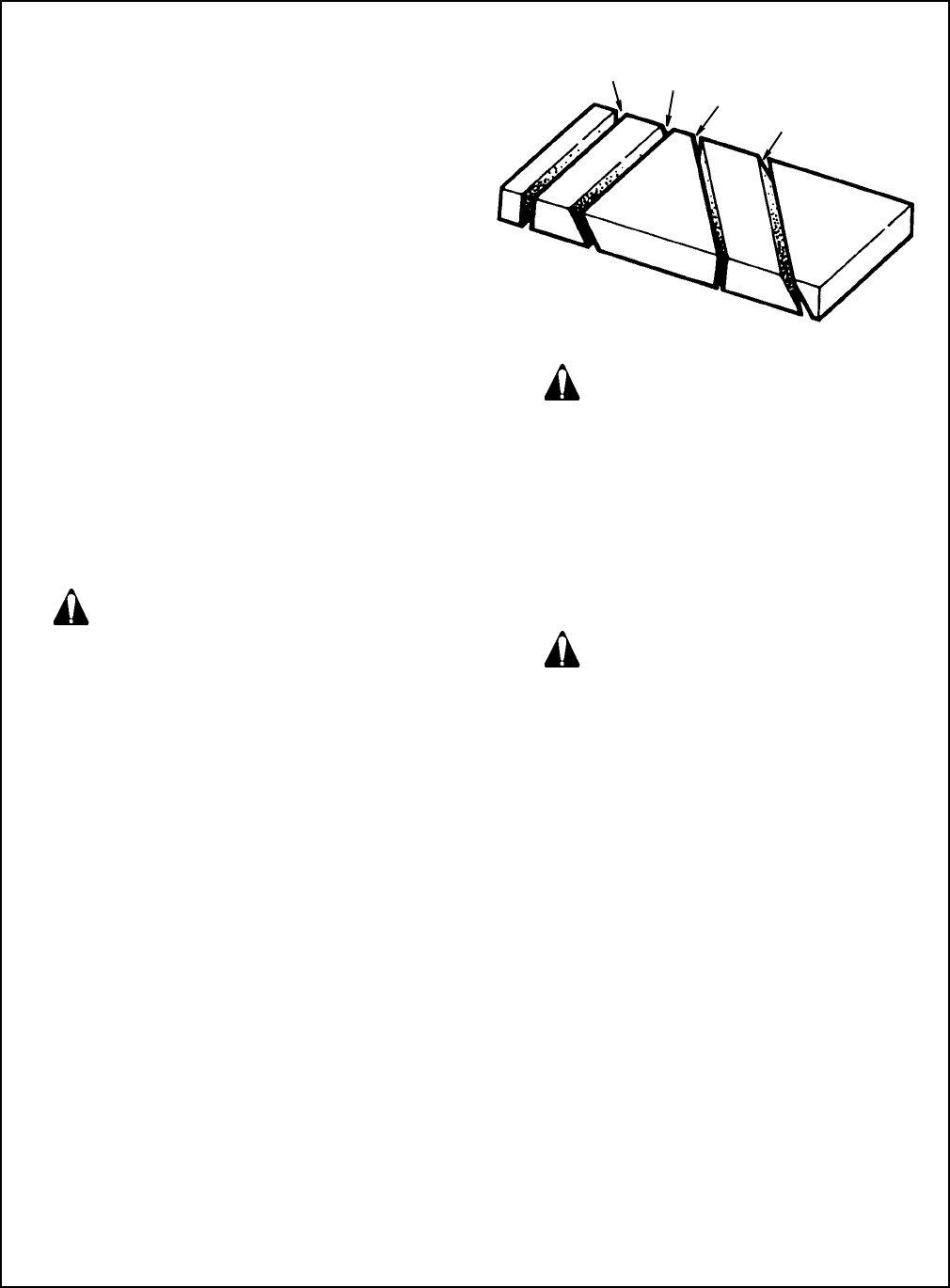
32
Crosscutting Defined
Crosscutting is cutting a workpiece to length.
The workpiece is held firmly against the
fence, and the blade is pulled through the
workpiece to make the cut. Straight, bevel,
miter, and compound cuts can be made.
Crosscutting Safety
The hazards associated with crosscutting
include: exposed blade teeth, rolling car-
riage, and thrown workpiece. This section
explains these hazards and tells how to
avoid them or reduce the risk of their hap-
pening. Read this section before making
any type of crosscut. Follow these steps
every time you make a crosscut.
Exposed Blade Teeth
WARNING
During crosscutting, blade teeth can
be exposed. To reduce risk of having
fingers, hand or arm cut off:
[Correctly install and use guard.
[Lower pawls or riving knife to clear fence
or workpiece, whichever is higher, by 1/4".
Lowered pawls or riving knife act as partial
barrier to front of blade.
[Keep hands away from blade and out of
blade path. Keep hand holding down
workpiece at least 8" from blade.
[Blade can come off table edge beyond 30°
left miter position. Use right miter position
whenever possible.
[Do not cut freehand. You will not be able to
control workpiece.
[ If blade jams, turn off saw, remove yellow
key, then free blade.
Rolling Carriage
WARNING
When saw is turned on, blade can sud-
denly come forward. To reduce risk of
this happening:
[Keep one hand on saw handle when turn-
ing saw on.
[Adjust leveling feet to make sure radial
arm slants slightly toward rear.
Thrown Workpiece
CAUTION
Workpiece could be picked up by spin-
ning blade and thrown. You might be
hit by thrown workpiece. To reduce
risk of thrown workpiece:
[Make sure installed fence is at least half
as high as the workpiece, and never less
than 3/4".
[Start and finish cut with blade in rearmost
position, behind fence.
[Firmly hold workpiece flat on table and up
against fence. Cut only one workpiece at a
time.
[Pull blade through workpiece only far
enough to complete cut, and never more
than half the diameter of blade.
[Do not touch or move workpieces until
blade has stopped spinning.
[Use length stop only on end of workpiece
which is held down.
[Use table extensions to support work-
pieces that extend beyond table.
Straight
Bevel
Miter
Compound
Crosscutting



